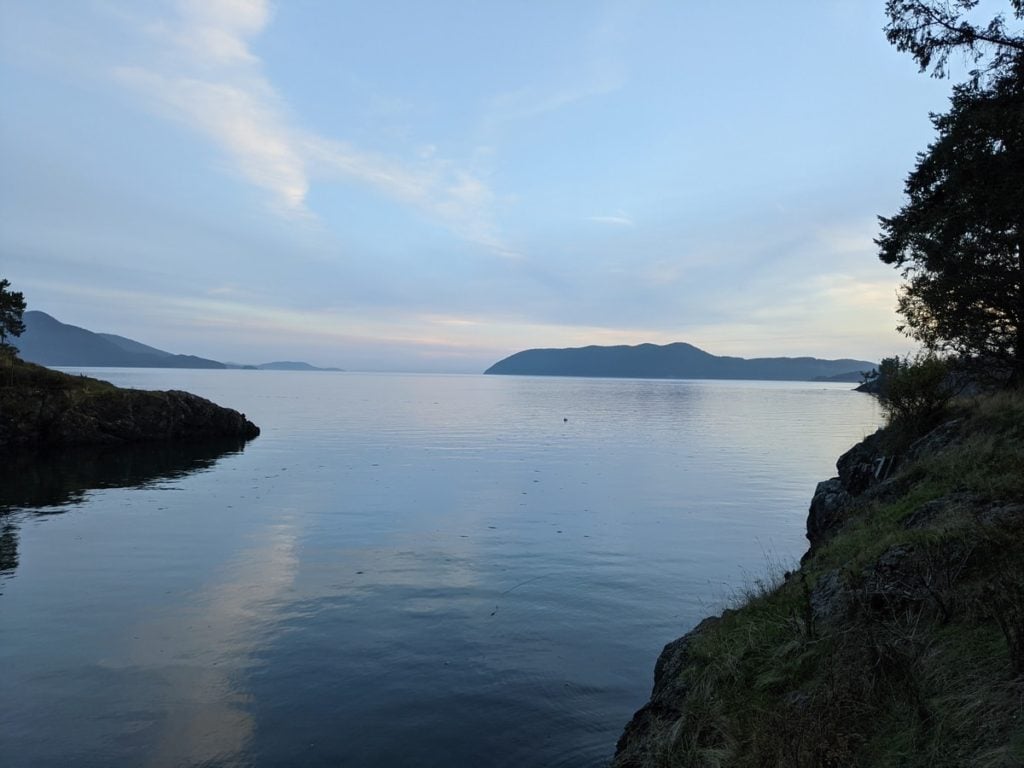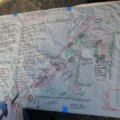
First, let’s catch up (AKA you can skip ahead to the content). I’ve let this blog go without updates for far too long! Been busy with moving to a new place, building a tiny home, a new job, and the list goes on… There has been lots of new thing I hope to share and fun projects/adventure. But more to the point of this post I, recently, joined a local group that tries to tackle the subject of degrowth.
I’m only on my second meeting and am already feeling my Eco-warrior batteries replenishing! Which takes us to the actual post…
Degrowth and Space
The definition of degrowth I’ll be working from…
Degrowth is an idea that critiques the global capitalist system which pursues growth at all costs, causing human exploitation and environmental destruction. The degrowth movement of activists and researchers advocates for societies that prioritize social and ecological well-being instead of corporate profits, over-production and excess consumption. This requires radical redistribution, reduction in the material size of the global economy, and a shift in common values towards care, solidarity and autonomy. Degrowth means transforming societies to ensure environmental justice and a good life for all within planetary boundaries.
I think we all can agree on what space is, right?
How does space affect growth/degrowth?
I could easily go down a rabbit hole on this. Centralization vs. De-centralization, which is good when? Or Capitalism vs. Socialism… But I do have other things to do this week 😅
So let me put a container on this and keep it to living spaces. One of the things that appeals to me about degrowth is the idea of enough, or even eco-sufficiency. We all have a propensity to want comfort, but often confuse that with more, better, newer, faster… How big do you really need your house to be? Turns out not very big at all.
Consider shared spaces with your neighbors. More access to books (shared library), tools (shared workshop), or food (shared pantry) could easily be a part of your life with some time and effort. This would allow everybody more access to these things while minimizing wasted space, saving money, and fostering more human connection. I, fondly, recall Mark Lakeman of City Repair speaking about this very thing. Neighbors in a city block knocking down their backyard fences to create a more socially engaging sense of place. I realize that this example creates more, not less, space… But, here, we are talking about retrofitting. What would it look like if city blocks were designed with co-habitation in mind?
There is also the concept of space and time. Do we really need all of (single-use) the rooms in a house? Not one laundry machine per home but several in a shared space. How about multi use spaces (this can apply just as well for single family dwellings or co-housing scenarios) such as a meeting room that can also be a kids play area, then a “movie theater”, and a guest sleeping area. All depending on the time of day. Like a watering hole, it is used by different creatures at different times, but almost never un-visited.
Same with garages… Ever been to a garage sale? If you are like me and peek at the garage, they very often have the same things. Lawnmower, clothes washer/dryer, work bench, collection of tools, bicycles, maybe a kayak, and all sorts of other items. How often do all of these get used? I guess that’s why garage sales exist. To get rid of the, wanted but not often used, items. What if there was a shared “garage” space? Several families could co-own a few of the said items, instead of each owning their own? Here at the EcoVillage, we have a wood shop. It’s got all the things I could ever want, but it’s shared. So we don’t have to all own these expensive, not often used, items. But when we need them, there they are! Same with our washer/dryers, we have a set of four used by around forty people.
One last idea I want to touch on is that these ideas (co-housing and sharing resources) are only valuable to people who could not otherwise afford housing, or cars, or have access to tools/food/books. Something on a kin to: “Sounds great for ‘them’, but not ‘me’, I don’t ‘need’ to do that”… It is very helpful in those scenarios, however, it is not just a good idea for the purpose of “lifting all boats”! What would it look like if everybody saw the benefit of this way of thinking, living, and sharing? Maybe less “I, me, mine” and more “we, us, ours”. How much of an improvement would our quality of life, environment, and social health see?
Please let me know your thoughts I’d love to hear them…
I’ll leave you with some resources shared with me, till next time 👋
TreeHugger.com:
Efficiency Without Sufficiency Is Lost.
EnergySufficiency.org:
The energy sufficiency project is a three-year eceee project primarily funded by the Copenhagen-based KR Foundation. Other agencies and partners are involved in specific workshops and are listed when applicable under each national workshop presentation.
Resilience.org:
Strategies for Cultural Change: Degrowth and the Use of Space
Energy sufficiency as alternative renovation approach for buildings:




